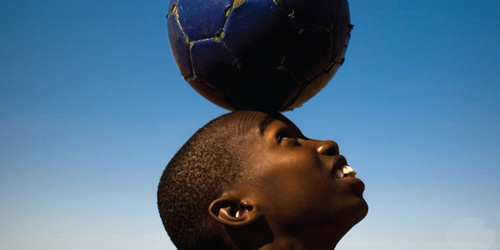
23 Jul BOOK IT!: ARMCHAIR OLYMPISM
 Even if you’re not a diehard sports fan, there’s something about that Olympic music* that gets you right there. As the background sonata for the battleground of interconnected nationalism, it stirs up a brew of nostalgia, history, politics, statistics, and achievement. An avid Olympiphile since I first saw Olga Korbut fold her tiny body in half—backwards—on the beam in Munich in 1972, I just can’t get enough. (I even wrote a graduate paper about “imposing” the games on rogue states like Somalia and Libya; the concept was definitely a little out there but I still got an A+.) It’s also why I look forward to the books that are released prior to the Summer Games. Columns of stats, historic anecdotes, overflowing trivia, the persistence of scandal, and those personal stories seem endless. Personally, I’ll be in Lithuania and France for most of the 2012 action, a neat opportunity to witness the games from a non-NBC perspective, as well as in different languages. For you armchair sports fans watching from Telluride however, Between the Covers promises an interesting selection of sports writing to keep you in the know. Here are some of our favorites …
Even if you’re not a diehard sports fan, there’s something about that Olympic music* that gets you right there. As the background sonata for the battleground of interconnected nationalism, it stirs up a brew of nostalgia, history, politics, statistics, and achievement. An avid Olympiphile since I first saw Olga Korbut fold her tiny body in half—backwards—on the beam in Munich in 1972, I just can’t get enough. (I even wrote a graduate paper about “imposing” the games on rogue states like Somalia and Libya; the concept was definitely a little out there but I still got an A+.) It’s also why I look forward to the books that are released prior to the Summer Games. Columns of stats, historic anecdotes, overflowing trivia, the persistence of scandal, and those personal stories seem endless. Personally, I’ll be in Lithuania and France for most of the 2012 action, a neat opportunity to witness the games from a non-NBC perspective, as well as in different languages. For you armchair sports fans watching from Telluride however, Between the Covers promises an interesting selection of sports writing to keep you in the know. Here are some of our favorites …
“How To Watch the Olympics” by David Goldblatt and Johnny Acton (Penguin, 2012)
This 400-page paperback is packed to the gills with stats and stories of every event that will be mounted in London. Unique illustrations and seldom seen photographs accompany interesting stories about the likes of Sybil “Queenie” Newall and her 1908 gold medal in archery at age 53, China’s Lin Dan and his 260km/hour badminton smash, and 15-seconds-of-fame streaker Michael Leduc during The Games in Montreal in 1972. There’s even a photo of a bare-chested Fidel Castro playing ping pong, signifying the sport’s worldwide popularity. The introduction states “you could just plonk yourself down on a sofa and keep your eyes open.” No harm in any of that, but to get the most out of the Olympics it really helps to know how to watch the proceedings. Which is where this book comes in: “a training programme for the Olympics, or, to be precise, a five-point-plan of crucial need-to-know information for each sport.” The plan includes Why Watch as in Why Watch Sailing? Why Watch Equestrianism? Why Watch Judo? Then it moves on to The Story of the Sport, The Basics, The Finer Points, and the Olympic History of the Sport. I particularly enjoyed the section near the end titled Discontinued Olympic Sports. Did you know that Tug of War, Lacrosse, and Bike Polo made appearances at the turn of the century before last? As the authors imply, imagine the tugging that coulda been during the Cold War!
“The Armchair Olympian” by Phil Ascough (Bloomsbury, 2012)
For know-it-alls and know-nothings alike, these short bursts of info and then a 12-question quiz will keep you and yours sprinting for the right answer. Topics to tackle: Cities and Venues, Controversies, Shocks and Upsets, In the Family, Choose Your Weapons, plus 15 more. As we’ve all heard over and over, flexing that memory muscle (and not Googling behind a couch pillow) is good for our brains. This would be a great book to have around for a game that involves libations during those tearjerker commercial breaks.
“The Hidden Mathematics of Sport” by Rob Eastaway and John Haigh (Portico Books, 2011)
Although not an Olympics-themed book, the information within this little hardcover is magical for those that love understanding how math plays into everyday actions. Disclosed are the theories behind angles and field or court or lane sizes, why rules and scoring are set in their ways, the diversity of penalty configurations, and some sure-to-win schemes that backfired. I suggest this book all the time for kids and adults who like math but not sports as well as for those who hate math but love sports. Again confirming that the mind has much to do with the physical.
“Swim: Why We Love the Water” by Lynn Sherr (Public Affairs, 2012)
What a treat it was to meet this award-winning broadcast journalist and life-long swimmer at a book conference in January after standing in line to get an advance copy signed for my mermaidian daughter. “Swim” is a love letter to the entire ancient concept of humans in water. She covers Julius Cesar, Michael Phelps, the “secret of buoyancy,” the fashion trends, swimming and the arts, and her own adventurous attempt to navigate the Hellespont. Did you know “that the fountain of youth may well be filled with chlorinated water?” I’ve always loved a book that takes a single topic and kneads it endlessly until it stretches to a thin, see-through membrane. That’s what she’s done here and a more appropriate homage to America’s third most popular sports activity we’ll not see again. Waterpeople of the world unite!
“The Ball: Discovering the Object of the Game” by John Fox (Harper Perennial, 2012)
I confessed above that I enjoy a book whose topic is beaten to a pulp, and so it is with this great tribute to the orbs of delight. They come in all shapes and sizes and colors, much like people. Such a simple invention and yet so many variations that have led to exemplary athletic prowess, baby play, stadium clash deaths, and so much more yet to come. The author chose to write about the ball because it’s “the most fascinating and least written about object ever invented” and because his young son simply asked him, “why do we play ball, anyway?” As a trained archeologist, we follow his quest for spherical history like side-by-side travelers researching the Iroquois, Charles Goodyear’s patent for vulcanized rubber, and the Maya underworld. Every page makes you say “huh.” A nice complement for those that got the chance to see Mountainfilm’s 2012 Audience Choice Award winner “Right to Play” by Frank Marshall. After all, a ball is more than just round.
There are so many more I could list here but I’ve got to get out to the courts to go hit a green fuzzy ball around before the raindrops shoo me off. Enjoy The Games for what they are: sport. Enjoy sports writing for what it is: fun. [Go Team Lithuania! ]
*The theme one hears the most and associates with the Olympics is actually one of two official songs. Composed by Hollywood music man John Williams, it way outplays the original theme written by Greek poet Costis Palamas and composer Spyros Samaras, which is what plays when the athletes march in.


Sorry, the comment form is closed at this time.